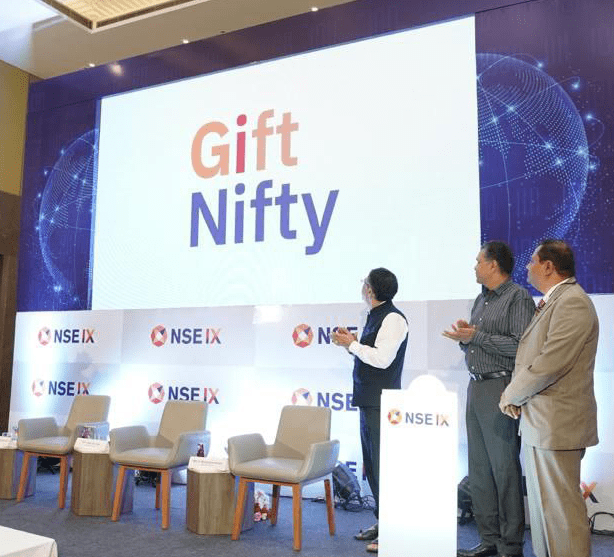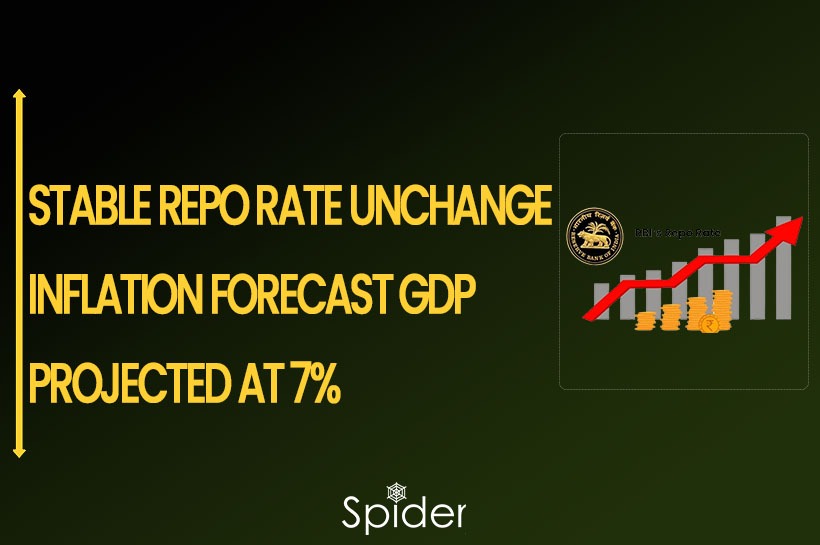Now SGX Nifty to trade in GIFT City as Gift Nifty from 3 July 2023
What is Gift Nifty?

The transfer of trading activities related to US dollar-denominated contracts of Nifty futures from the Singapore Exchange (SGX) to the National Stock Exchange of India (NSE) International Exchange (NSE IX), located in GIFT City SEZ and operating under the regulatory framework of the International Financial Services Center Authority (IFSCA), has shifted the open positions from SGX to NSE IX.
What happens to SGX Nifty?
SGX will suspend SGX Nifty trading, a futures contract based on Nifty 50 index of NSE. The Singapore Exchange (SGX) will delist SGX Nifty and replace it with Gift Nifty on NSE IX in Gandhinagar, Gujarat for trading.
The Indian government’s move to shift SGX Nifty to NSE IX aims to attract foreign investors and bolster the financial markets. Operating from an SEZ, NSE IX grants investors tax exemptions including STT, commodity transaction tax, dividend distribution tax, and capital gains tax. This will make it more attractive for foreign investors to trade in Indian derivatives
What are the timings of SGX Nifty?
Gift Nifty’s trading hours will extend from 16 to 21 hours, enabling overlap with trading hours in Asia, Europe, and the United States. This will give investors more opportunities to trade and hedge their risks.
Retail traders and investors can expect a seamless transition from SGX Nifty to Gift Nifty. The contracts will be identical and the trading hours will be similar. Gift Nifty, on the other hand, will undergo trading on NSE IX, a regulated exchange in India, being the only distinction.
How does the shift benefit investors?
The shift from SGX Nifty to Gift Nifty can benefit investors in a number of ways:
- Tax benefits: Investors trading Gift Nifty on SEZ get tax exemptions: STT, commodity, dividend, capital gains. This will make it more attractive for foreign investors to trade in Indian derivatives.
- Extended trading hours: Gift Nifty trading hours extended by 5 hours from 16 to 21, overlapping Asia, Europe, and US. This will give investors more opportunities to trade and hedge their risks.
- Regulatory oversight: The Indian government will regulate Gift Nifty, thereby instilling greater confidence in investors regarding the safety and transparency of the market.
- Increased liquidity: The shift from SGX Nifty to Gift Nifty is expected to actively increase the liquidity of the Indian derivatives market. This will make it easier for investors to buy and sell contracts, and it will also help to reduce volatility.
How does it impact retail traders and investors?
Here are some additional benefits of the SGX Nifty to Gift Nifty shift for retail traders and investors:
- Reduced latency: Gift Nifty will be traded on a local exchange, which will reduce latency and improve the speed of execution for retail traders and investors.
- Enhanced access: Gift Nifty will be available to a wider range of investors, including retail investors. This will make it easier for more people to participate in the Indian derivatives market.
- Greater convenience: This will make it easier for retail traders and investors to manage their portfolios and trade across different asset classes
Can retail traders trade in Gifty Nifty contracts?
No, retail traders cannot trade in Gifty Nifty contracts. Gifty Nifty contracts are only available to institutional investors and qualified foreign investors. Indian retail traders prohibited from actively trading foreign currency-denominated derivatives, including Gifty Nifty in USD.
However, there are a few ways for retail traders to indirectly participate in the Gifty Nifty market. One way is to invest in mutual funds or ETFs that track the Gifty Nifty index.
Trading derivatives contracts carries risks; retail traders must have a high risk tolerance and understanding before engaging in such activities.
Also, Check out our article on Nifty All-Time Highs: Should You Be Greedy or Fearful for Q1?
Disclaimer: The information provided in this Blog is for educational purposes only and should not be construed as financial advice. Trading in the stock market involves a significant level of risk and can result in both profits and losses. Spider Software & Team does not guarantee any specific outcome or profit from the use of the information provided in this Blog. It is the sole responsibility of the viewer to evaluate their own financial situation and to make their own decisions regarding any investments or trading strategies based on their individual financial goals, risk tolerance, and investment objectives. Spider Software & Team shall not be liable for any loss or damage, including without limitation any indirect, special, incidental or consequential loss or damage, arising from or in connection with the use of this blog or any information contained herein.





